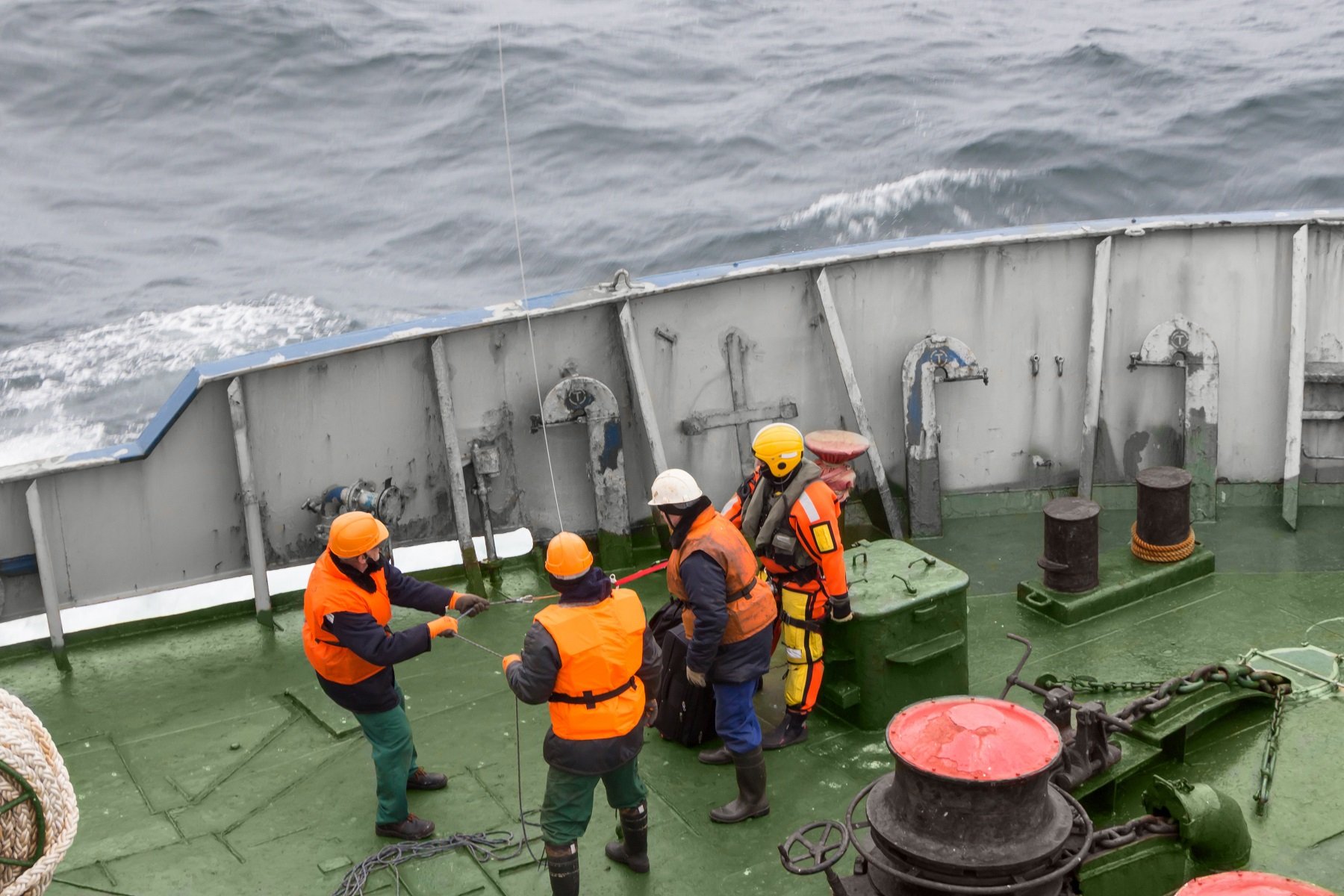The Jones Act covers a wide range of topics related to maritime law as part of the former Merchant Marines Act. Part of the Jones Act includes employers’ responsibilities and liability for accidents and injuries that occur to seamen in the service of a vessel.
Just like land-based employers, sea-based employers have a duty of care to provide safe working environments that have minimal hazards. When an employer fails to provide this duty of care, it often leads to accidents, personal injuries, and even death of employees.
On land, we refer to injury claims filed by injured employees as workers’ compensation. At sea, we refer to injury claims filed by injured seamen as Jones Act claims. For injuries sustained on-the-job, employers are required to pay for medical care and treatment. This is what is referred to as medical care liability
Failure to provide the necessary medical care and treatment can result in the employee seeking legal remedies with assistance from a qualified Jones Act attorney or workers’ compensation lawyer.
The Jones Act vs. Workers’ Compensation
The Jones Act and workers’ compensation have many similarities. They both provide medical payments for the care and treatment of on-the-job injuries. However, there are a few key differences you need to know.
Does Liability Matter for Workers’ Compensation Claims?
With workers’ compensation claims, liability is not a factor to claim benefits. The employee could have been at fault for their injuries. The employer could be at fault for the employee’s injuries. Both the employee and employer could have contributed to the employee’s injuries.
Does Liability Matter for Jones Act Claims?
Lability in Jones Act claims can matter when seeking compensation from an employer. Unlike workers’ compensation claims where liability does not matter to claim benefits, things are somewhat different with Jones Act claims.
The injured maritime worker must prove that their employer contributed in some manner to their injuries. The percentage the employer is at fault does not matter for filing a claim. For instance, the employer provided a faulty safety harness that led to the accident and subsequent injuries. Even if the worker was performing a dangerous task and not following the proper procedures, if part of the reason they were injured was due to the faulty safety harness, then they can file a claim.
When an employee is found to have been partially at fault for their injuries, the amount of their compensation can be adjusted due to comparative negligence. This type of negligence is where a percentage is assigned to each party responsible for the accident and injuries.
Any compensation recovered is then adjusted by the percentage amount the employer is found to have been at fault. To illustrate, let’s assume that the employee was found to be 10% at fault and the employer 90% at fault. The employee is entitled to a total of $100,000 in compensation.
However, since they were 10% at fault, then their total compensation received would only be $90,000 ($100,000 – $10,000). Please note that these figures are just to illustrate how comparative negligence works and by no means should be used as legal advice or how much compensation you could receive for your injuries.
What Compensation Does the Jones Act Cover that Differs from Workers’ Comp?
Another key difference between Jones Act claims and workers’ compensation claims is the types of compensation one can recover. While both types of injury claims do provide compensation for medical care and treatment and disability payments, the Jones Act offers additional compensation, including:

- Lost Wages: A seaman can claim past, present, and future lost wages due to their injuries.
- Future Medical Bills: A seaman can seek compensation for ongoing and future medical care and treatment, such as surgery that is required due to their injuries or ongoing physical therapy.
- Lost Earnings Capacity: The difference between what the seaman would have made if they could return to their former job compared to returning to work at a reduced earning capacity is another form of compensation allowed with Jones Act claims.
- Pain and Suffering: An injured seaman can seek compensation for pain and suffering.
- Physical Disfiguration: If the injuries result in the loss of limbs, scarring, or another type of disfiguration, the seaman can seek compensation.
- Mental Anguish: Compensation can be sought for mental anguish and suffering, such as depression, PTSD, or a reduced life expectancy due to the injuries.
- Punitive Damages: In some cases, the court will award the injured party punitive damages, which is an additional type of compensation at the court’s discretion.
Injured seamen can also seek immediate relief for payable benefits provided by Maintenance and Cure, another key part of maritime law. Maintenance and Cure does not require establishing who was at fault for the accident and injuries, just like workers’ compensation claims.
Maintenance provides payments for essential living expenses like food, housing, and basic utilities. Cure provides payments for medical care and treatment expenses. Injured seamen can file for Maintenance and Cure immediately following their accident.
Additionally, if the injured seaman will not qualify for compensation under the Jones Act, they can still draw benefits through Maintenance and Cure. Yet, if they do have grounds for compensation under the Jones Act, they can draw benefits through Maintenance and Cure, as well as seek compensation with their Jones Act claim.
How to Qualify for Jones Act Compensation
In order to qualify for Jones Act compensation, there are specific qualifications maritime workers must satisfy. Among these, the most important is that the worker must be in the service of a vessel at the time of the accident and resulting injuries. Other qualifications include:
- The seaman must spend a minimum of 30% of their time on the vessel.
- The seaman must perform work that contributes to the ship’s overall operations.
- The vessel owner or employer must be negligent in some manner that resulted in the injuries.
If you meet these requirements, then you could potentially have grounds for filing a Jones Act claim against the responsible party or parties. In certain situations, there could be more than one responsible party that contributed to the accident and subsequent injuries.
For example, a shipowner fails to maintain a seaworthy vessel that they have contracted out to another company. This company is the seaman’s employer and is well aware that the vessel is not seaworthy, yet continues to operate it regardless.
Since both the shipowner and employer demonstrated a lack of a duty of care for the seamen on board, if there is an accident that results in injuries, then the seamen could potentially sue both the shipowner and employer for compensation with help from Jones Act attorneys.
Furthermore, one must file a Jones Act claim within three years from the date of the accident. Claims cannot be filed after this statute of limitations expires. Ideally, one would not want to wait until the last minute to file their claim, as there are sometimes delays and other issues that arise. Instead, it is highly recommended to file a Jones Act claim as soon as physically possible.
Do I Need a Jones Act Attorney to File a Jones Act Claim?
While the law does allow individuals to represent themselves when filing a Jones Act claim, it is never a good idea to do so. Maritime laws are complex and detailed, with a wide array of exceptions. Additionally, there is maritime case law, which could apply in specific situations that one would not be aware of when representing themselves.

Besides, self-representation frequently results in a much lower settlement than one is entitled to receive. The employer and their insurance company will have their own Jones Act lawyers protecting their interests to negotiate the lowest possible settlement. Their lawyers will also attempt to shift fault to make it appear the injured seaman contributed more to their injuries than the employer.
Having a Jones Act lawyer represent your interests will ensure you are not taken advantage of while obtaining a significantly larger settlement. Plus, most maritime lawyers do not collect legal fees unless they settle the case or win at trial in court.
Not to mention, there are cases where one is not entitled to file a Jones Act claim for their injuries. Yet, there could be other maritime laws and acts that would pay compensation if a claim is filed, such as the Longshore and Harbor Worker’s Compensation Act (LHWCA).
As seen above, it is always in the best interests of injured maritime workers to seek sound legal advice and representation from a qualified maritime and Jones Act law firm like Maintenance Cure, part of Schechter, Shaffer & Harris, L.L.P.
To speak with one of our Jones Act attorneys, call 800-836-5830 now! We are available 24/7 to answer your questions and provide a no-obligation free consultation.







